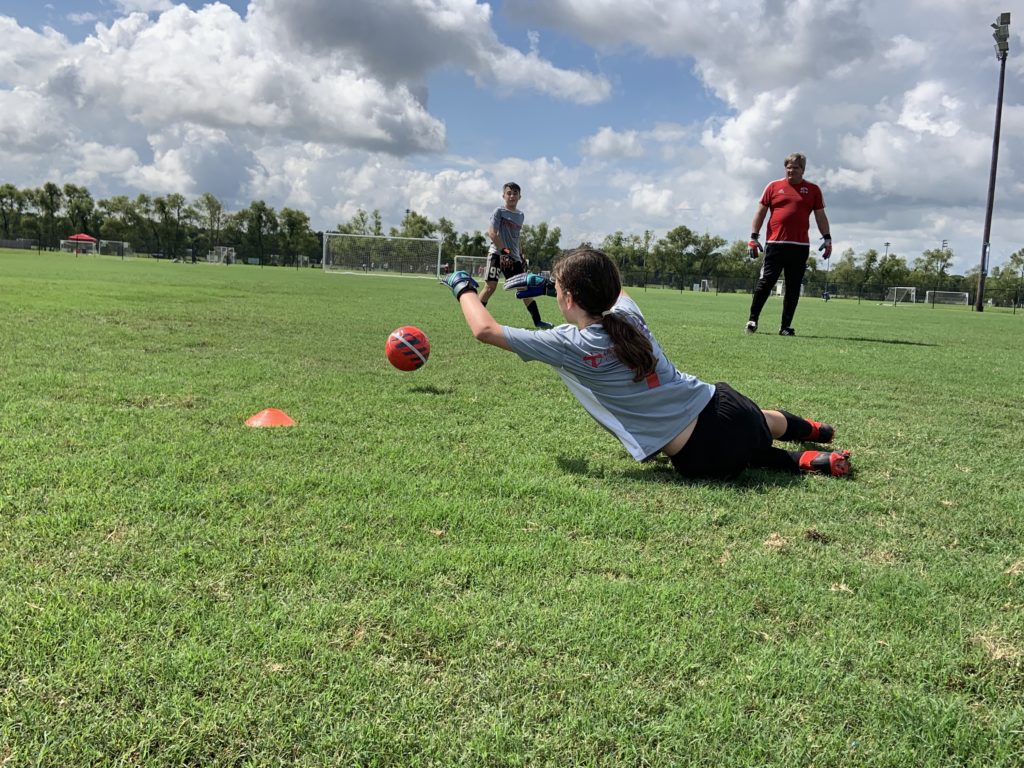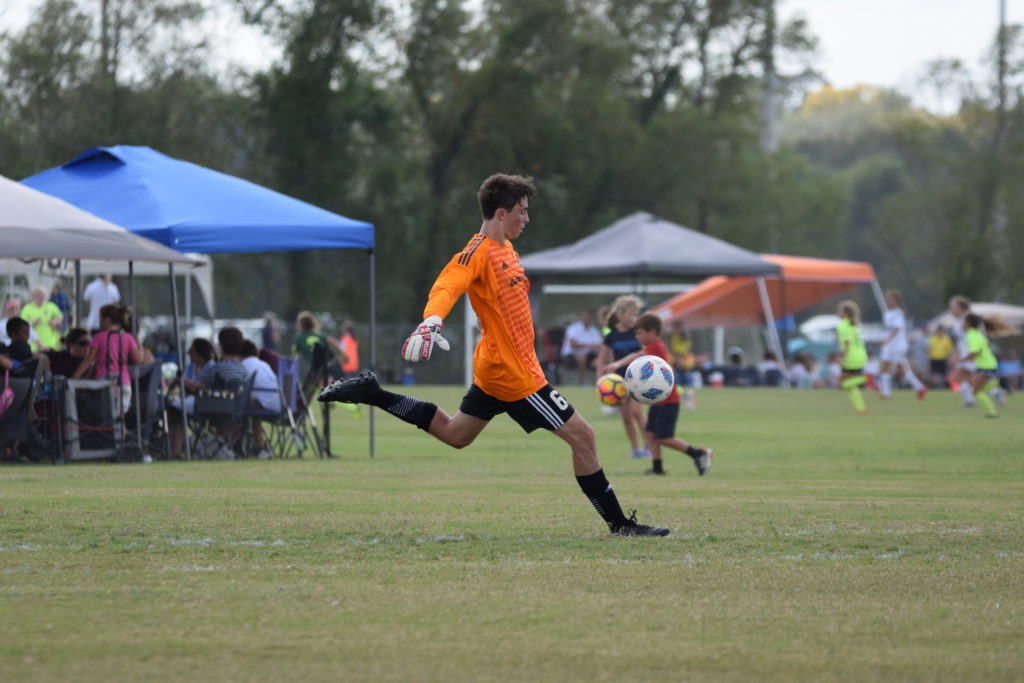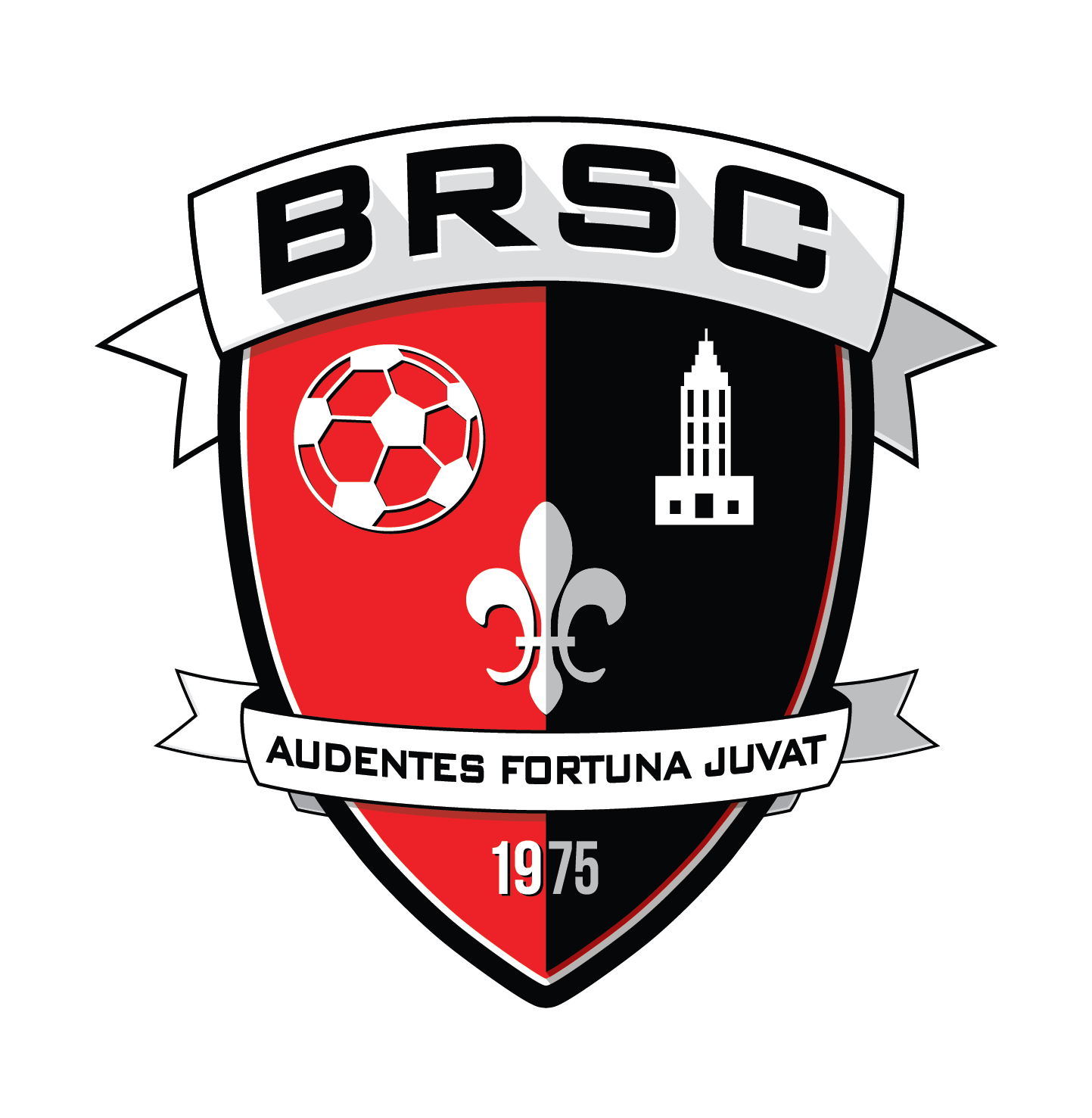GOALKEEPER DEVELOPMENT
In keeping with the core values of Baton Rouge Soccer Club, the mission statement for goalkeeper development within the club has two definitive pieces. Growth from the U-8 to U-12 levels, and then the U-13 to U-19 levels.
For the younger age-group, the emphasis is on the development of coordination, balance, movement, and technical development. By the time a goalkeeper reaches the later stage of this age group, there should be some level of tactical development in terms of giving commands, distribution, and decision making. Goalkeepers in this age group also are playing in the field to develop as overall players of the game. They need this experience not only to handle the expectations of the older age group but to be a well-rounded player overall. The goal for many of these goalkeepers should be, for example, to be the starter on their high school team as a freshman and to be involved in regional groups at the club level.

For the older age group, along with continued development of coordination, balance, and movement, there will be the teaching of more advanced techniques of goalkeeping as well as a greater emphasis on the command of the box and tactical awareness. As goalkeepers get to the advanced stages of this particular group, training becomes more in tune with what they will see at the collegiate level. The expectations for that phase of development usually come between the U-16 to U19 levels.
Many factors will go along with a player's development in BRSC. Goalkeepers, as all players within the club, are continually being evaluated within the club structure. As a club, we give evaluations of players at the end of each cycle of the season. These evaluations help players and parents know how the club feels the player's development is progressing. We base this development on the four pillars of the position: Technical, Tactical, Psychological, and Physical.
PLAYER MOVEMENT & GUEST PLAYERS
Player movement can occur anytime during the year. The most common time for change occurs during the player placement process, which occurs in late May through early June. The Senior coaching and other club staff may choose to facilitate a player move when it is mutually beneficial to the player and the club. Any movement from one team to another will have the player's maximum level for development involved.
Goalkeepers for BRSC will, on occasion, participate in other teams for a competitive match. Guest playing is beneficial for the team and the goalkeeper. Though many times this will be a movement to what is considered an upper-level squad, it may also involve playing with a group of the same or lower level. The philosophy is the development of the player by getting game experiences to foster their improvement as a player. The coaching staff facilitates guest playing opportunities and communicated to players at the earliest possible time frame, so they have a reasonable preparation period.
GOALKEEPER DEVELOPMENT
There will be two types of goalkeepers typically within the club structure. There are players who are committed to playing the position full-time. Then some athletes will play in goal and on the field. Those goalkeepers that say they are "full-time" have committed to the position and want to maximize their development as a goalkeeper. The amount of playing time these goalkeepers have will depend on the number of goalkeepers on a particular team and ability level. However, these players will be given first consideration to play as guest players if there is a need for a replacement in competitions. Those players that want to develop both their goalkeeping and field playing skills and tactics are not considered to be above or below goalkeepers that are committed to just the goalkeeper position. There will be a tendency for these players to be placed on a team with two slots for the position. This placement allows the player to maximize their ability to play both in the field and goal. The coaching staff will determine team placement. The assignment includes the player's level of skill in both goalkeeping and field skills.

It is important to note that the overall development of the player if the most critical aspect of being part of BRSC. The modern goalkeeper needs to be proficient in both the technical/tactical components of goalkeeping. Players should be able to handle the demands of outfield play. In the modern game, the expectation is that keepers should be able to handle both.
Goalkeepers will be expected to attend specialized training sessions for goalkeeper twice per week with the goalkeeping staff as well as attending regular training sessions. It is critical for the development of the player to their maximum level. It is a part of playing the position to have this level of commitment and willingness to become proficient at their craft. The development of our goalkeepers is crucial for our clubs' success. Our goalkeeping staff as a professional group will have the ability to develop our players to their maximum best.
Goalkeeper development expectations by age group level.
Ages 12 and under: Foundation development
Ball size: 4
Training session length: 75 minutes (maximum)
Technical/Tactical development – Basic foundation (set position) Footwork (varied movements), Positional play (shot-stopping and connection with the team), Catching, Re-loading techniques, Distribution both by hand and ball striking, Diving techniques within the body line, 1 v 1 techniques, introduction of handling of crosses since most of the environments for play do not place an emphasis on those techniques until movement to 11 v 11 play.
Psychological development – Decision making (when to come to get a ball as opposed to staying back and preparing for a shot), handling success or failure during matches, staying engaged in the game/being in rhythm with the team, what is player doing if they are the substitute keeper?
Physical development – Coordination, warm-up, flexibility, nutrition, hydration.
Ages 13-15: Intermediate development
Ball size: 5
Length: 75 min (90 min maximum)
Technical/Tactical development – Continued development of body foundation, positioning in the goal, positionally staying connected with the team, footwork, distribution in all phases (throwing and ball striking), handling the back pass, advanced 1 v 1 techniques, advanced crossing/high ball techniques, organization of the team, advanced communication.
Psychological development – Managing starting vs. being the substitute keeper, dealing with the adversity of the position, handling coaching, application of advanced techniques to game time decision-making, handling pressure situations, dealing with an injury.
Physical development – Re-coordination after growth spurts/body changes, strength, flexibility, explosive power, increasing leaping ability, quicker reaction time.
Ages 16-19: Advanced development
Ball size: 5
Length: 75 min (90 maximum)
Technical/Tactical – Handling the ball over the head (going back to the crossbar, saving balls that have gotten behind the keeper), Post to Post movement/saving techniques, making the save going back across the body, advanced recognition of instruction for defenders (recognition of combination plays, types of balls being played), continued tactical development playing with different systems.
Psychological development – Handling pressure situations, staying positive and focused mentally in adverse situations, Positive and honest self-assessment, Recovery from mistakes, handling competition for the position, preparing for the next level of competition (speed of the game), Arrogance vs. Self-confidence, Willingness to be in the spotlight/handling the big moments, Leadership vs. Destructive influence,
Physical development – Developing into the adult body (continued strength, flexibility, motor coordination coinciding with body changes), the continued growth of explosive movements, continued work on jumping ability, nutrition, and recovery.
Evaluation/Development Assessment
The process of evaluation and assessment is ongoing. As the Goalkeeper Director, I will be coordinating assessments with coaches of individual teams to determine the effectiveness of our goalkeepers in the club. Teams give assessments of goalkeepers from the perspective of game performance and improvement in play throughout the season. The best way to get information about how goalkeepers are doing in our training sessions is to talk with me directly or emailing me a rrollins@brsoccer.org. I will be reassessing the formula of how we judge success/failure in training in the coming months in coordination with our lead coaching staff.

